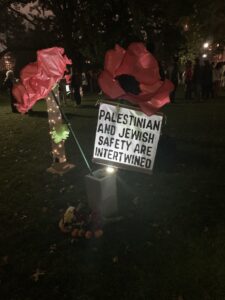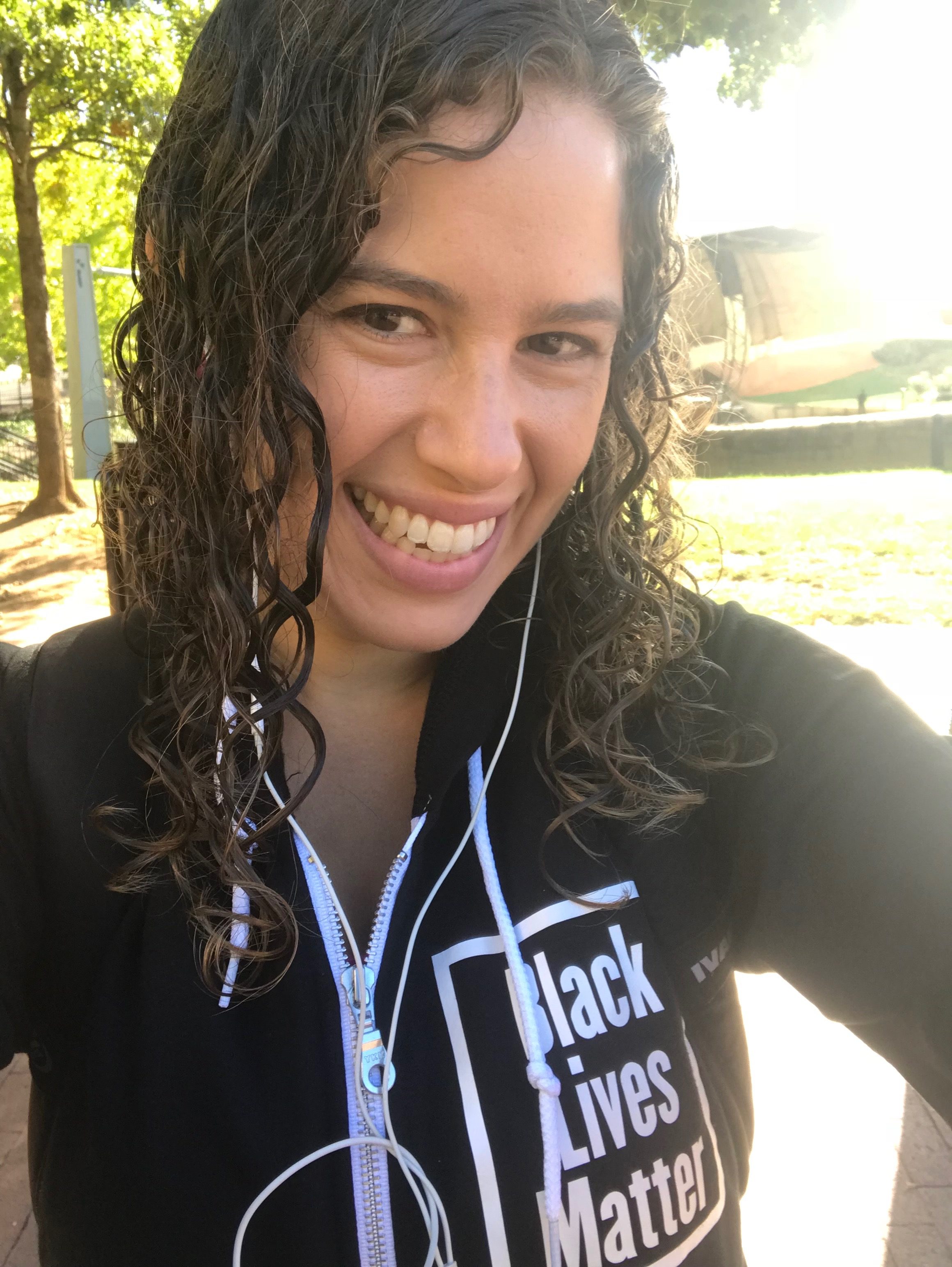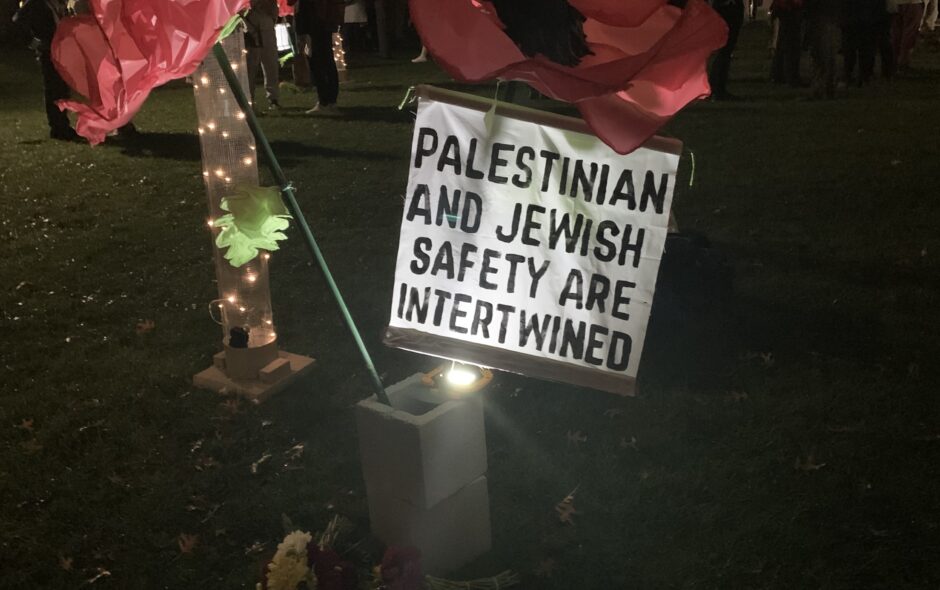I was invited to give a d’var, words of reflection, at the Kol Nidre service (erev Yom Kippur) of Kavod House Boston, a Jewish social justice community. Thank you to the Kavod service leaders for inviting me to be part of such a beautiful, powerful Kol Nidre service, and thank you to my brilliant friend Ben for generously talking through these ideas and stories with me.
Welcome, to this space here together, welcome to we who sin. We, who transgress. Tonight, we will help each other repent, and repair, and build the selves we want to be and the world we want to be in.
In June, I read a book that changed my life and it taught me about Doikayt, which means hereness in Yiddish. A 20th century Jewish idea that told a story of staying in place. Organizing in place, where we are now, for safety through solidarity not separation. Being ourselves, as Jews, building relationships and coalitions and making our way through whatever mess we find ourselves in.
And wow, do we find ourselves in quite a mess.
I’ve felt a pain this year I haven’t felt before. Like something beautiful inside me is now shattered glass. Like my own body has caused irreversible harm. Like I will live with this forever. I will. The pain of witnessing genocide, the shattered glass feeling of witnessing genocide carried out by Jewish people for a Jewish state. Shattered glass inside me.
We also find ourselves this year with fear. Fear of losing loved ones to illness, war or disagreements. Fear of losing jobs to tech, budget or because we take action on something we believe in. Fear of the U.S. election. And what will happen after that.
My friend Robert loves to give effusive compliments, and says to me, you are so fearless. I take a breath, and say, I am so scared. I’m scared every day. But fear is not where I stay. I stay here. In hereness I find hope.
I’ll tell two stories about hereness, that I’m scared to tell. These stories talk about Israel, and Palestine, and Gaza, and saying anything publicly about Israel, and Palestine, and Gaza right now is terrifying. But I’ll do it.
I went to DC this summer and reached out to a Jewish friend I hadn’t seen in years. I went right to her neighborhood from the train station, with my suitcase, in the outrageous summer heat. We talked about work and family and I’m pretty sure she is the one who broached the subject of Israel and Palestine. Her feelings of pain and fear and attachment to Israel’s role in Jewish life were strong, and different from my feelings, which are also strong. It was hard. She also told me about her abortion access organizing, how she was part of a group that prayed outside an abortion care center to show spiritual support. She and I may not be organizing together right now, but we have in the past and we may in the future. She and I share community in our social justice movements.
At another point this summer, I was on a Zoom call with a group doing Palestinian solidarity organizing in a secular community I’m part of. We were having a group discussion on a book that, um, I had not read. I wanted to listen and planned not to talk, just stay muted, video off. There’s maybe 7-10 people, and I think I was the only Jewish person. They’re talking about the book, and I’m learning a lot, and then one person says something about how activists showing solidarity with Palestinians can get falsely accused of antisemitism. True. I turn my video on ready to chime in until I remember I was just there to listen. The facilitator had already called on me, so I said, I think one way to ward off false accusations is to be really clear in our solidarity with Palestinians that we are against Islamophobia and antisemitism, and we believe Palestinian liberation and Jewish liberation go together.
The next person to talk said, people are too worn out to care about Jewish liberation. We are traumatized from months of fighting genocide, and by these false accusations. It’s too much.

I may not have her exact words right, or fully understand her point. But I hope to understand, as time goes on and we continue to organize together. I will continue to organize with her. She and I share community. Maybe one day she and I can have the kind of hard one-to-one conversation I had with my friend in DC. Maybe she is hurting too much for that right now, focusing her energy to organize against genocide. I can wait. I’m here.
The Kol Nidre service tells us it is okay to pray with people who have sinned. I wonder too if it is okay to organize with people who have not perfected their activist analysis, who do not shine with brilliant empathy in every word and every decision. I believe it is. Yom Kippur gives us tools we need to do that, to build community and organize movements with people who have sinned, caused harm, enabled antisemitism, enabled genocide. Yom Kippur offers us ways to be imperfect people who own our mistakes and say I’m sorry and I am also worthy. I have sinned and I’m sorry and I repent and I repair and I deserve to be here. To be inscribed in the book of life.
Tonight, I invite you to sink into hereness. Feel yourself here. Your body in your chair. Your feet on the floor. Feel the mask on your face. The vibrations of our shared song. Feel the grief. May the grief move us to repent, repair, and hold ourselves accountable so we may practice solidarity, build for liberation, and here live out together the world we want to be in. May we all be inscribed in the book of life.

